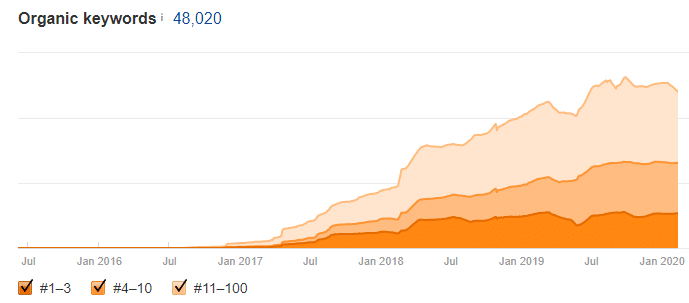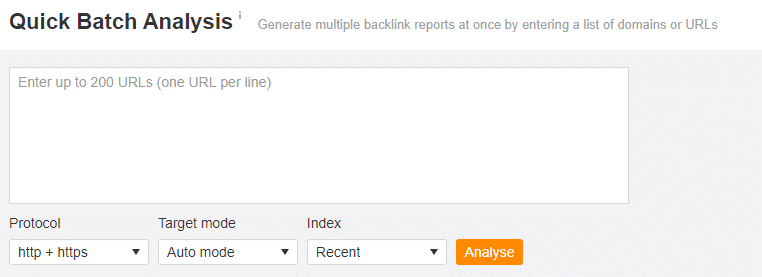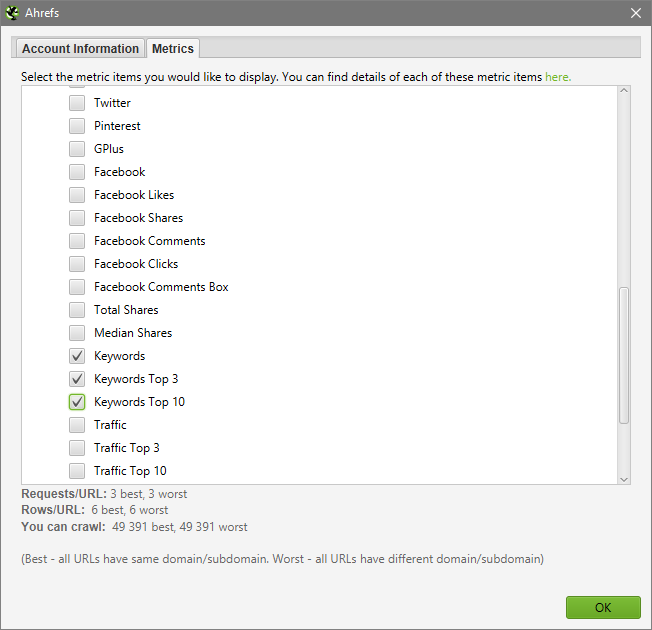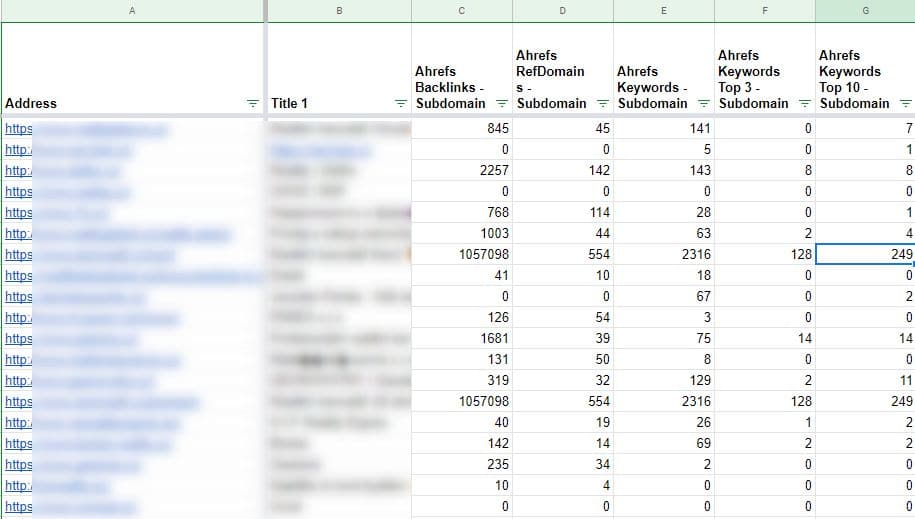How to evaluate domain´s authority for link prospecting
There are various approaches to see the strength of a domain for link building. I even remember the old Toolbar Page Rank. Currently, many use external metrics like Domain Rank, MOZ Rank or any other 3rd party rank. These metrics mostly suck! There are better data available that come (almost) straight from Google!
Contents
The idea behind
First, I ´d like you to follow my train of thoughts.
If you create a page on a domain, it has a purpose. This purpose is represented by a keyword or a phrase. So basically, if Google likes your content on that page, it´s going to rank you somewhere.
Simply said, a good page should be ranking at least for a single keyword.
In real life, a really good page ranks for many queries. The more, the stronger it most likely is.
So we are set up. Let´s move the next step.
Get the data
First, you need to find the “size” of the page. No worries, just use site:domain.tld query in Google on desktop. It shows you the approximate amount of pages of the domain.
Follow my example for a Czech domain Arecenze.cz.

You can see the number of indexed pages is sligtly over 3000.
Now your goal is to find how many keywords is a domain ranking for. This used not to be easily possible in the past.
Now we have Ahrefs and their Organic Keywords data.
In Ahrefs, you can see it ranks for over 48 thousands queries! So it´s a good first signal for you.

But ranking somewhere in Google does not necessarily mean the domain is strong.
So let´s use the position filter in Ahrefs to see the number of queries at positon 1 to 10.

The number is over 26 thousands queries. So over 54% of the queries it ranks for are the sweet spots in Google´s results.
A small conclusion
By comparing the “size” of the domain to a number of queries in ranks for, you´ll easily see how strong your link from it might potentially be.
But you are not limited only by the actual data. Trends are imporant as well.
Is the domain getting more popular in time?
It´s easy to observe the trends in Organic Keywords graphs in Ahrefs.

Scaling
You can simly do this one domain by another. If you do mass prospecting, you have more available ways to go.
First, you can try Batch Analysis in Ahrefs. They allow you to get number of ranking keywords for 200 URLs at once. You only can´t filter the country.
BTW you can help me make Ahrefs develop the Country Filter by voting here. My request has been number one in the related category, it is already marked Planned, but no progress has been made so far.

In case you need more, Screaming Frog added this data from Ahrefs in the 12.6 release. Just pick the right metrics in configuration of API access.
By using the crawler for this task, you can get another data like meta title or description at once to be able to easily filter the topics of the domains.

The data is really amazing. I only miss the filter for the country.

Weak points
I expect some questions about the reliability of this process came to your mind. I´ve had some myself, so here are my answers.
The data set is different for every country. It simply doesn´t have to contain all queries you´d usually find during your keyword analysis. You can check the Search traffic Index for all counries here.
The ranking data contain dupliacated queries if the the landing page´s changed for some reason. You need to live with that, or you can spend some time doing deduplication in a spreadsheet. I don´t.
Also, they contain the brand queries. If you like, it´s easy to remove them by using the Exlude filter.
The ranking in Ahrefs does not represent an average position. Yeah, that´s the usual 3rd party rank tracking issue. You need to live with that.
It does not work pretty well for really small niches. E.g. a “link building” as a topic consists from only a few queries in the Czech Republic. So even I produced tons of content, I may not be ranking for a bigger number of queries.
It also does´t work for large sites like Amazon.com. But do you really have to check it this way? 😉
Final thoughts
I´ve been using this process to pick my targets for a few years. I believe it´s by far the best way to go, because it´s build on data from SERP. It´s not a 3rd party metric, it´s not a calculation. Just a signal that shows what Google loves.
I am curious about your thoughts on this.
- SurferSEO - write the best content for SEO
- Sitebulb - the BEST crawler
- SEO Testing - Google Search Console data in turbo mode
- GPT for Sheets™ and Docs™
